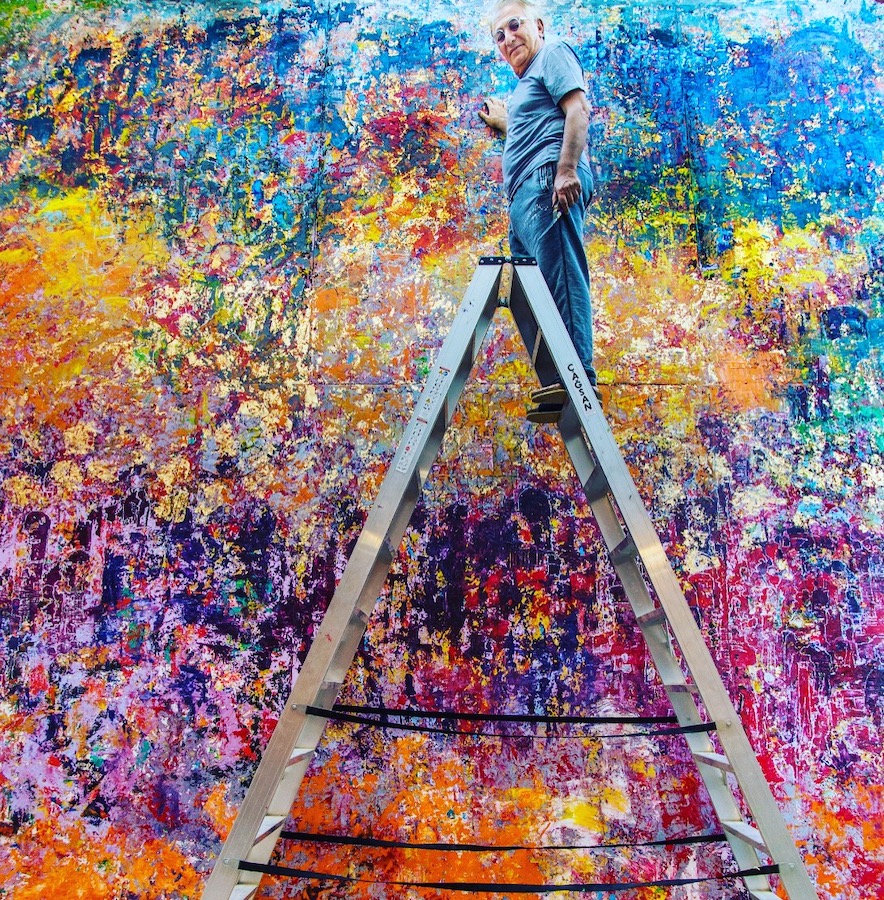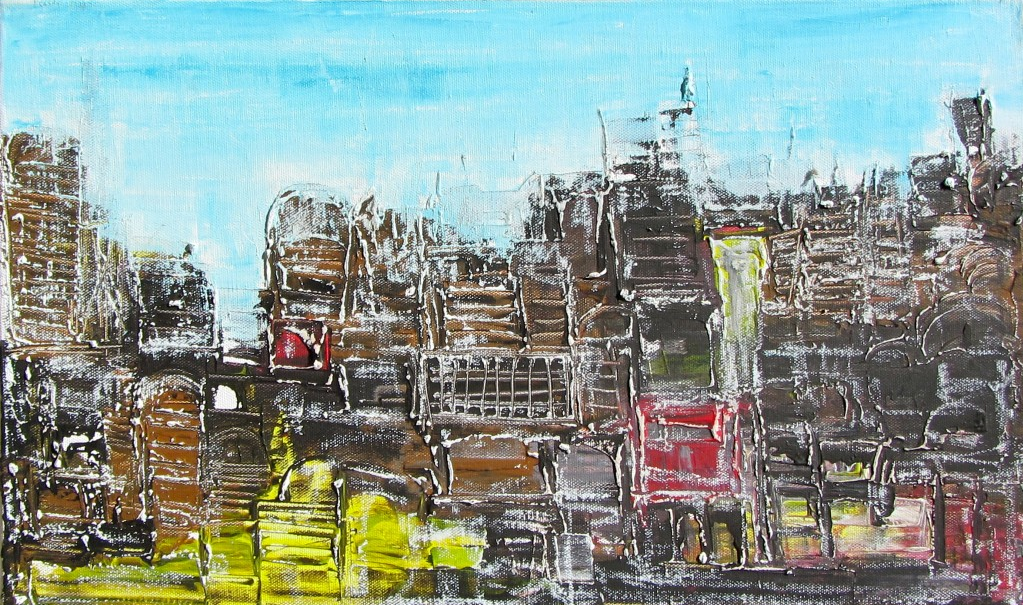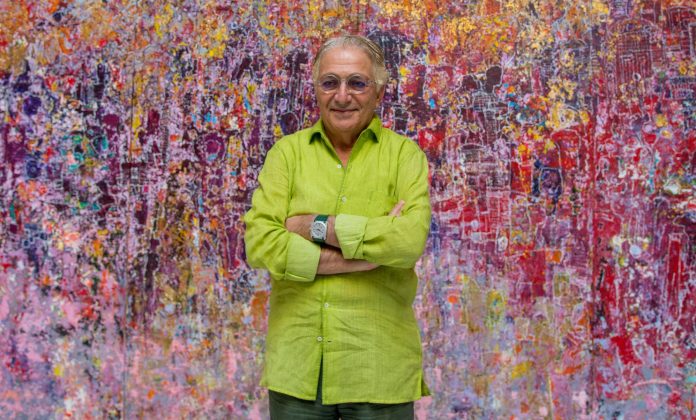LONDON: Egyptian artist Ahmed Farid is a late bloomer. In his fifties, already established as a successful businessman, he found himself outside an art supplies store during one of his twice-yearly business trips to Florence. He stepped inside and purchased some paints, brushes and canvases. When he returned to Cairo he made his first attempts at painting. “I didn’t even know that oil paints needed time to dry,” he tells Arab News. “When they had not dried by the second morning, I left them.”
Fortunately, his wife spotted the potential in those paintings. Not long afterwards, the family moved house, and when Farid opened the door of their new home, he saw that she had had his paintings framed and hung on the walls. Since then, his work has hung on gallery walls across the world, and been sold at Christie’s.

Not that Farid, now approaching 70, is in this for the money. Art offers an escape from his high-pressure business career, he says. “I know things are going well when I forget about time and whistle along to the music playing in the background. It’s like a physical change. I am old but I feel young.”
In April, locked down in Cairo, he found himself unable to paint. “I thought, ‘I’m getting old. I’m losing my ability to paint. I’m not doing so well in business…’ I felt I was falling — like a leaf,” he says. But then he began to reflect on his blessings, and the feeling passed. “Sometimes I think about my friends who are sitting in their pajamas — stuck in armchairs with a TV remote control — and I realize I am lucky to have my life and engage with people all over the world. I have lived through many autumns and seen that what follows is spring and summer. I am in the autumn of my life, and it is a beautiful season,” he says.
Here, Farid talks us through some of his favorite works. Not a task he particularly enjoys, he tells us: “Generally when someone asks me to analyze my work, I refuse, because I can’t. It’s very personal.”
‘Urbanization 10’ (2012)

I live in a very nice gated compound in Cairo overlooking a golf course. But to go to my office downtown I have to go past a lot of slums. I started thinking about how people manage to live in these buildings. You can see some faint figures in the painting. I was imagining people shouting from the windows, people sleeping in crowded rooms — perhaps nine to a room, people in the streets. Above the slums you find a lot of pigeon cages on the rooftops. People enjoy watching them fly and at the end of the day they start whistling to them and they come back. I was very affected by this. For me the people in the slums were themselves in cages. What you see in my paintings does not resemble the real thing at all. These paintings are very textured and intense. When you see the slums in Cairo they are not beautiful. But I believe that doing art that comes out ugly is not artistic. Art has to be beautiful — not ugly. My paintings help me to express my feelings. I might be considered a capitalist with a socialist attitude.
‘Untitled’ (2016)

Most of the people who see my work say that they can see Egypt in it. Here, I was trying out a new technique. I asked myself, “Why not use markers?” So I was doing that and the Dean of the Accademia D’Arte in Florence (where Farid studied and has a studio) walked by and said: “What you are doing is very nice.” I came back from that trip with 10 or 15 different types of markers in hundreds of different colors. I always like to innovate and try new techniques.
‘Untitled’ (2008)

The black figure in this painting represents a friend of mine who has now passed away. He was a very kind, very pure-hearted person. He looks like he is evil here, but I put a white dot on him because he’s very white-hearted. You know, there are guys who encourage their friends to go out and (party) and have fun and you might think someone like this is evil, but they are not. He was showing us with his two hands: ‘This is heaven and this is hell, but you can walk in the middle.’ It was a joke, really, but it came out as a nice piece of art and I gave it to him as a gift. He appreciated it.
‘Organic Bliss’ (2020)

This painting is from the “Seasons” exhibition held this month at Safarkhan Art Gallery in Zamalek. I feel it represents the balance I want in terms of color, composition and texture. I was putting all my energy into creating layers over layers with many techniques — including acrylics, house paint, gold leaf, wax and collage. The painting has buildings, plants, sky, figures and stories — people talking to each other. I was very happy painting it.
‘Untitled’ (2017)

This painting emerged from time I spent in Aswan and Luxor. I wasn’t painting, but I was taking a lot of pictures. Most of the good ideas I have, I have found, come from the past. Sailing in Upper Egypt is full of gold — the temples along the Nile and the light reflecting on the land and people. This was my first attempt at minimalism, and it actually ended up selling very well at Christie’s. I tell young artists not to copy: Studying art does not make you an artist — you can become a competent artisan or art teacher, but to be an artist you have to make something unique.
‘The Urban Invasion’ (2018)

This painting was included in an exhibition at the Manial Palace in 2018. The palace was built by Prince Mohammed Ali Tewfik between 1899 and 1929. I imagined how the prince would have felt if he had woken up today and found his island paradise, including the magnificent gardens, surrounded by slums.

